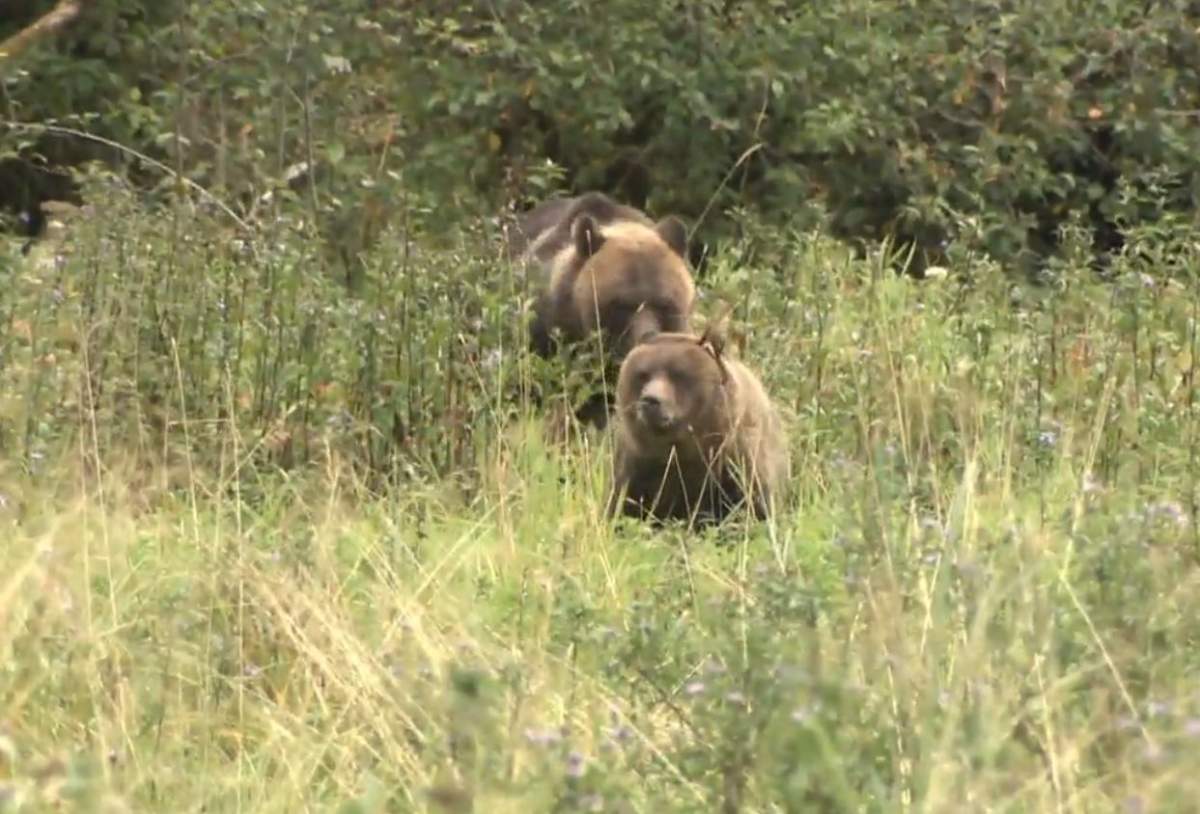We know it’s been a difficult week for British Columbians and the world, marked by tragedy, loss and incalculable grief.

That’s why we felt it was more important than ever to bring our weekly good news dispatch to your inbox. Here are a handful of stories to bring a bright spot to your Friday and into the weekend.
Here are the five stories we wanted to share:
Okanagan Nation applauds proposal to restore grizzly bears to North Cascades
The Okanagan Nation Alliance is applauding the restart of talks to reintroduce grizzly bears to the North Cascades Range.
The U.S. government recently announced it’s relaunching the Environmental Impact Statement process.
“It’s been a long time in the making, and a lot of, like, working to align timelines and policies and getting our governments to agree on things and I feel like this is a really historic moment in time for us and I don’t think we’ll be missing this opportunity,” said ONA Natural Resource Manager Cailyn Glasser.
Syilx Nation natural resources chair Jordan Coble said the announcement “marks an important moment in time for recovery efforts on both sides of the border.”
“Many decades of work, by many committed people have led us to where we are now,” said Coble.

‘Like a miracle’: Mystery cash baffles, delights Victoria apartment residents
People living in a Victoria housing complex are thanking a mysterious benefactor, after discovering an unexpected gift of cash on their doorsteps.
Over the weekend, residents of 18 individual units in the subsidized housing complex on Esquimalt Road say they came home to find a $50-bill on their doorstep.

Get daily National news
“There it was as I opened the door,” Joanne Parks told Global News. “I thought, I don’t think anybody owed me money that they’re paying back, this is kind of crazy. I couldn’t figure it out.”
No one in the building appears to know the origin of the cash, which amounts to $900 in total.

Meet the diver who’s pulled more than 27,000 kg of trash from B.C. lakes
Forget the coral reefs, sunken ships and exotic marine life, B.C. scuba diver Henry Wang is only interested in one thing: Garbage.
Wang has been diving in bodies of water around the Lower Mainland for more than a decade on the hunt for trash, and estimates in that time he’s pulled up more than 27,000 kilograms (59,000 pounds) of refuse.
On Monday, he was at Abbotsford’s Albert Dyck Park, where he said he pulled up more than 30 kg (67 pounds) of garbage.
“All of these things are not supposed to be in the water column and they do degrade over time,” he told Global News. “They are not supposed to be in the water, so it’s a good idea to take them out.”

B.C. to require flush toilets on construction sites with more than 25 workers
The B.C. government is moving to legally require flush toilets on construction sites with more than 25 workers.
The move, announced Monday, comes less than a week after the BC Building Trades, a union representing more than 40,000 workers, called on the province to mandate the facilities.
“If we want people to work in the trades, if we want to show people that this is a great way to support your family and build your community, the basic ability to go to a bathroom that doesn’t stink, that isn’t a mess, where you can flush a toilet is a basic requirement for a decent job site,” B.C. Premier David Eby told the union at its convention in Victoria.
Details of the plan have yet to be announced, but in a media release the union hailed the province for acting.

Why more universities are covering tuition for some First Nations students
The University of Toronto is the latest Canadian university to announce it’ll be covering tuition for First Nation students whose community’s traditional territory is on or near campus.
This move is one that’s popping up across Canada and the U.S. Earlier this year the University of Waterloo and Kwantlen Polytechnic University made similar announcements.
Covering tuition for First Nations students is being heralded by many as an act of meaningful reconciliation.
“This is a step towards honesty, making the words that they’re saying have meaning,” said Tristen White, a computer science and Indigenous studies student and member of the Mississaugas of the Credit First Nation.
“At university, there are a lot of events and they’re always doing territory acknowledgements, but when students are like, ‘It doesn’t mean anything, you’re just saying stuff’ — with covering tuition, now they’re trying something real.”
Sign up to receive newsletters and breaking news email alerts.







Comments
Want to discuss? Please read our Commenting Policy first.